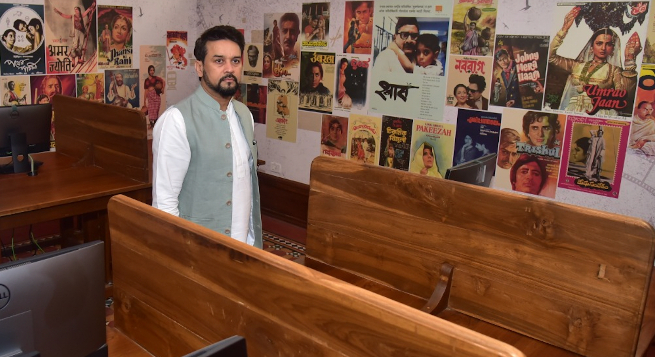The Indian government on Thursday said it was undertaking the world’s biggest film restoration project at an estimated budget of Rs. 363 crore under the National Film Heritage Mission, which is in line with PM Modi’s vision for preserving national heritage, while appreciating the work done till now by films and TV institutes in nurturing media talents.
“Out of the total outlay of Rs. 597 crore earmarked for this (National Film Heritage) Mission, Rs. 363 crore shall be utilized exclusively for restoration purpose, making it one of the World’s largest film restoration projects,” Minister for Information and Broadcasting Anurag Thakur said in Pune on Thursday during his visit to the National Film Archive of India (NFAI).
The National Film Heritage Mission, launched in 2016, is aimed at preserving, restoring and digitizing India’s cinematic heritage.
“It is Prime Minister Narendra Modi’s vision to prioritize preservation, protection and promotion of India’s rich cultural heritage, and films constitute (an) important part of this heritage” Thakur pointed out.
He remarked that films were part of India’s culture and that the seminal contribution made by the film industry in the last 100 years has made India the biggest film industry in the world.
According to the Minister, the process of restoring over 5,900 short films, documentaries and features is underway and this exercise, carried out by NFAI, proves to be one of the world’s biggest restoration, conservation, preservation and digitization processes undertaken.
The restoration process includes a large number of films, including shorts, features and documentaries made in different Indian languages. Efforts are being made to bring in new technologies to restore and to archive this valuable cinematic heritage for future generations.
Earlier in the day, the Minister held a meeting to review the functioning of Film and Television Institute of India (FTII) and deliberated on the vision of taking FTII to international standards of excellence.
Thakur opined that collaborations with film institutes of international repute would enhance the storytelling capabilities of students. FTII should nurture entrepreneurial skills and equip students to launch startups in film and television productions, he added.
“FTII is a prestigious institute of India. During the review meeting an elaborate discussion was held on how to take FTII forward in (the) TV and film sector and also promote FTII in the field of Animation, Visual Effects, Gaming and Comics. Also, by honing the skills in our students, they can be transformed from job-seekers to entrepreneurs,” he said to the media, adding, “Our institutions and students are central to achieving our vision in the media and entertainment sector.”
“I interacted with the FTII students and faculty to understand how we can work together to showcase the best of this institute and make it ready for new age cinematic excellence, partnerships and more,” the Minister said.
Thakur also released the Hindi edition of Lensight, the academic journal of FTII. Chairperson of FTII Shekhar Kapur, MIB Secretary Apurva Chandra, FTII Director Sandeep Shahare and other officials of the institute were also present on the occasion.
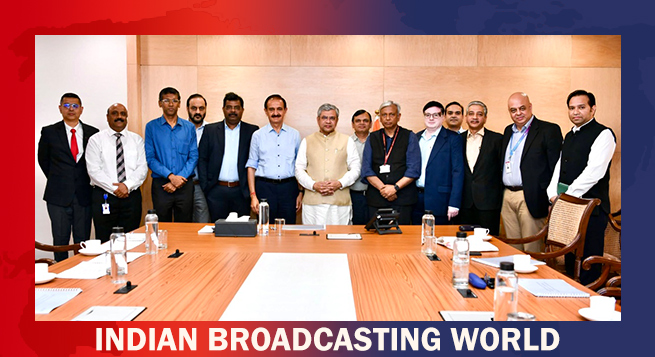 AIDCF team discusses industry issues with Vaishnaw
AIDCF team discusses industry issues with Vaishnaw 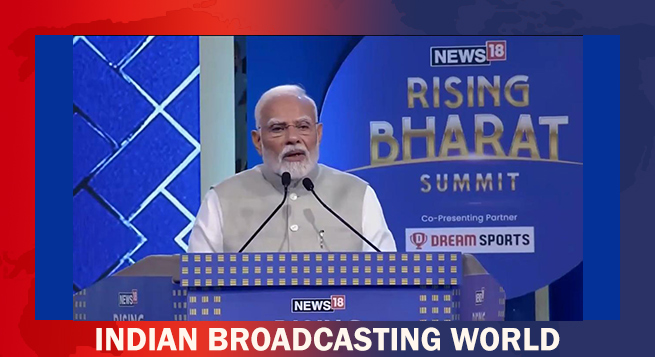 PM Modi: WAVES will empower Indian content creators go global
PM Modi: WAVES will empower Indian content creators go global  Meta rolls out ‘Teen Accounts’ feature to FB, Messenger
Meta rolls out ‘Teen Accounts’ feature to FB, Messenger 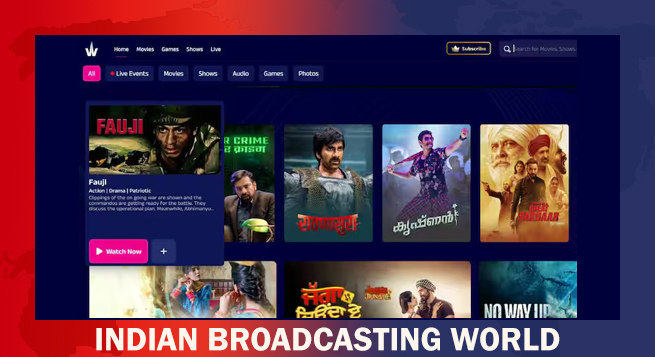 Govt. says pvt. sector TV channels can ride pubcaster’s WAVES
Govt. says pvt. sector TV channels can ride pubcaster’s WAVES  China curbs Hollywood films’ imports in US tariff war
China curbs Hollywood films’ imports in US tariff war  ‘Chhaava’ set to stream on Netflix from today
‘Chhaava’ set to stream on Netflix from today 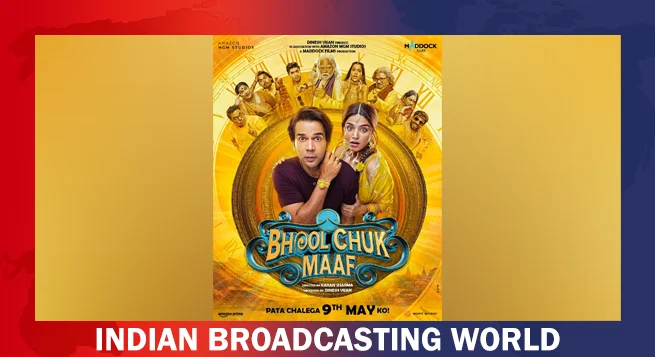 ‘Bhool Chuk Maaf’ trailer released
‘Bhool Chuk Maaf’ trailer released 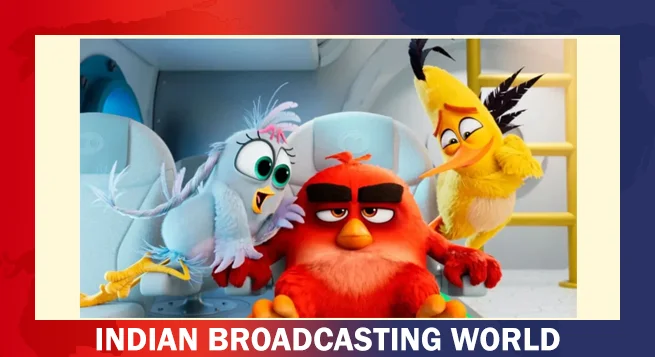 ‘The Angry Birds Movie 3’ to release Jan 2027
‘The Angry Birds Movie 3’ to release Jan 2027  TV9 Marathi first Marathi news channel on DD FreeDish
TV9 Marathi first Marathi news channel on DD FreeDish 


